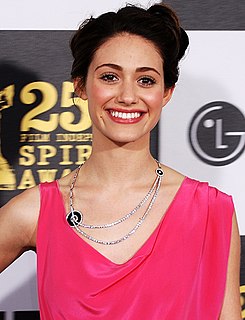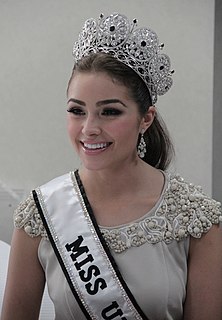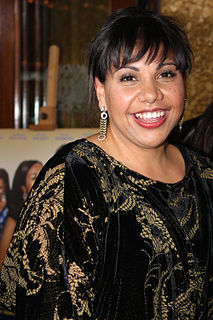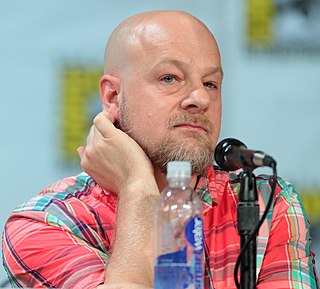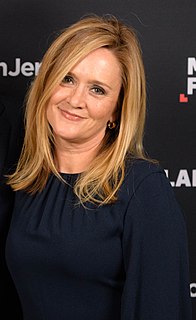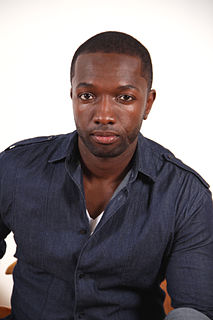A Quote by Emmy Rossum
Theater is such a different ballgame than film. And that's really why I stayed in film, because I really love the reality of connecting with your own feelings, and really putting that across in a realistic way. In film, the smallest muscular movements in your face, that are produced just by sheer feelings, you're not controlling them in anyway, can be seen by people in the audience because your face is sometimes, frighteningly, 40 feet wide!
Related Quotes
When you're making a film, you don't really have time to consider what the whole of your film is. And then, when you're releasing your film and promoting your film, you're looking at it in a different way. Then, as you move away from it, you start to look at it objectively and think, 'What could I have done better?'
I've always loved film more than theater, and film may be more closely related to making a record because you have that ability to go in and do your work and have no judgment around it, and feel honest. Then, much later, it's presented to people. But in theater, people come backstage after a performance and you're about to do the same play again the next night, and people say, "Well, I didn't really believe that emotion" or whatever. It's really hard for me, I like to be closed up and just do the work.
It makes sense that it's so different from film and television, because it's so in-depth. As actors, when we're in film or television, we can have transcendent moments and we get to work with really creative and incredible people, but it's such a small percentage of your time that's about your process.
OCD, we discovered is a lot of different things-it's not just washing your hands, it's whatever you're obsessed with. It can be just the way you hold a pen, and you always have to have it a certain way or you have to eat your food, it depends. It's something that, as a character I thought was really interesting because sometimes it's used in a film where it is OCD and sometimes it's strategic.
The Australian film industry is a small industry, so you have to really be flexible within working in different mediums. A lot of actors work in theater, film, and television, because there's not much opportunity in terms of employment there. So you do have to be resourceful and be able to flex your muscles artistically.
I don't do commentaries on films because A) I'm not very good at it and B) it's an odd thing that I discovered, on my first film, that you go through this really intense experience of making a film and then you sit in a little room with a monitor and you reduce the thing to a bunch of silly anecdotes. It's really unfulfilling and I've never really enjoyed listening to them anyway, so I just don't do them.
If you make a film, that magic is not there, because you were there while shooting it. After writing a film and shooting it and being in the editing room every day, you can never see it clearly. I think other people's perception of your film is more valid than your own, because they have that ability to see it for the first time.
There are loads of sociopolitical, racial, class and future-planet situations that really interest me, but I'm not really interested in making a film about them in a film that feels like reality because people view that in a different way. I like using science fiction to talk about subjects through the veneer of science fiction.
It's very disconcerting to have a camera shoved in your face. It's really discombobulating. If you're the least bit nervous you forget what you just said, you can't find your way through, you can't follow the logic of your own statements sometimes. It's a weird sensation. And I think that really helps to lock people in place.
Your first film is always your best film, in a way. There's something about your first film that you never ever get back to, but you should always try. It's that slight sense of not knowing what you're doing, because the technical skills you learn - especially if you have a film that works, that has some kind of success - are beguiling. The temptation is to use them again, and they're not necessarily good storytelling techniques.
I don't make movies. I don't feel that I have to have artistic control. Part of this comes from the fact that the book lives on no matter what Hollywood does to your novel in terms of a film. Now, you try to be careful who you allow to do your film because nobody wants their novel to become a turkey movie. But, on the other hand, it is a crapshot anyway, because even the best people can make a bad film.
